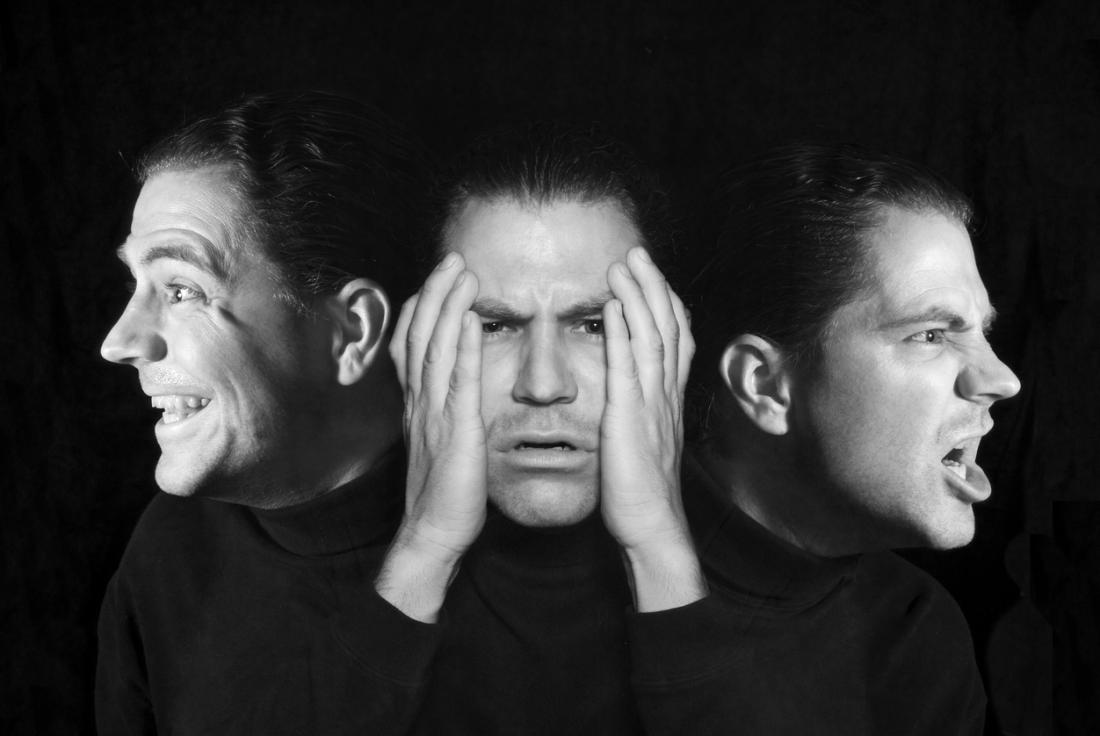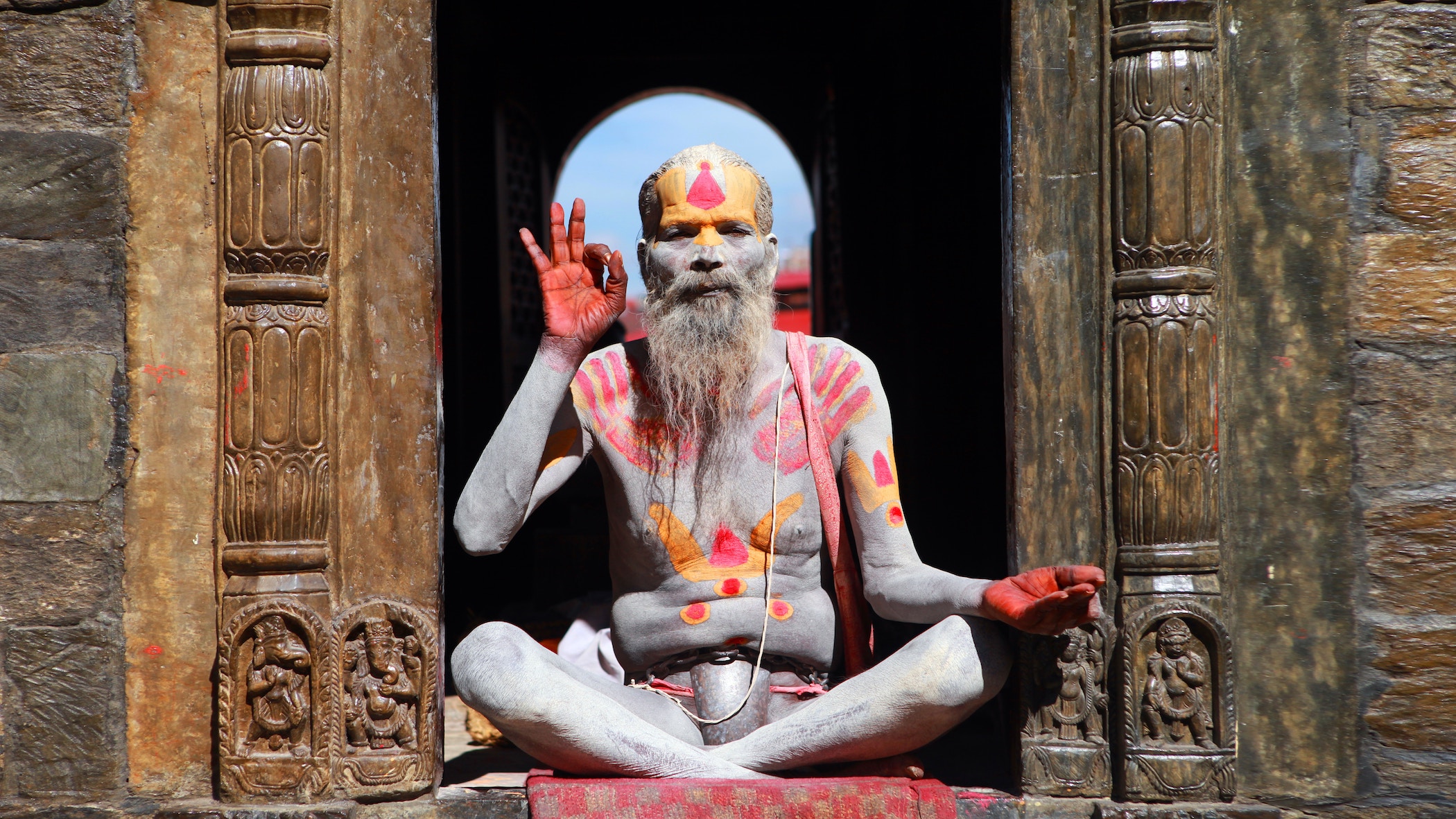Trauma and PTSD: How to Treat the Symptoms of Your Traumatic Experiences
Everyone ends up with trauma and PTSD in some form. Life is hard, and growing up in difficult times, even in normal families, can be a challenge. By the time we leave home and set up our own residence, most of us have been through trauma-causing experiences. You don't have to be a soldier fighting in a war to have an adverse reaction to stress. Trauma victims can include those who suffer the death of a loved one, children who get bullied at school, athletes who have nasty injuries, survivors of car accidents, floods and hurricanes, and the list goes on.
What can we do to alleviate traumatic symptoms like nightmares, flashbacks and panic attacks?
As it turns out, there are plenty of steps we can take to hasten the healing process, some quite simple and easy. Let's take a look at how we can help our minds and bodies to recover.
 Trauma and PTSD making you act crazy?
Trauma and PTSD making you act crazy?Common Symptoms of Trauma and PTSD
Perhaps the first step is to realize or accept that you may have trauma of some kind or PTSD. The hallmark emotional symptoms of trauma are shock, denial and disbelief. Later on, a variety of symptoms may manifest.
- Re-experiencing the traumatic event
- Avoidance of people and places that remind you of the event
- Hyperarousal
- Negative thoughts, beliefs and expectations
- Anger, frustration and mood swings
- Anxiety
- Depression
- Physical symptoms like headaches and difficulty breathing
- Withdrawal, a sense of disconnection and numbness
- Lack of interest in normal activities
How to Manage or Resolve Trauma and PTSD
Severe trauma and PTSD may be difficult to cure, but, in many cases, you can certainly learn to manage the symptoms and to restore normal functioning (in more severe cases, the best approach would be therapy and medication). The average person can improve his/her life and reduce their symptoms by taking steps to hasten their recovery.
Traditional Forms of Therapy for Treating Trauma and PTSD include:
- Cognitive Behavioral Therapy
- Acceptance and commitment therapy
- Exposure Therapy
- Eye Movement Desensitization and Reprocessing
- Grief counseling, if warranted
Therapy may offer those with serious symptomology the best anecdote to trauma and PTSD. And therapy can save you from years of frustration and continued struggle.
How to Find A Good Therapist
Try to find a therapist in your area who is experienced and successful in treating trauma and PTSD -- and a therapist who makes you feel comfortable and safe. I've seen clients take the first therapist who answers their call, but it is better to search for a good fit. I recommend checking into a therapist's credentials, asking around for a recommendation, calling therapists and asking them about how they work, what models they use, etc.
One of the most effective therapies for trauma and PTSD is Ericksonian Hynotherapy, which allows you to move into a brain state where healing is maximized, and where the body marshals support for healing naturally and managing the symptoms. In the hands of a qualified practitioner, hypnotherapy can give you excellent results, and it's very enjoyable and relaxing. The beneficial effects of an hour spent in therapeutic trance can stay with you for hours afterwards.
Spending time in Deep Relaxation is a therapeutic way to combat symptoms and to build your inner strength. Progressive Relaxation is a good way to get into a deeply relaxed state, where the mind and body rests and rejuvenates. Dr. Herbert Benson coined the term, "the Relaxation Response", which refers to the physiologic changes that take place when we enter a deep state of relaxation, and engages the parasympathetic nervous system. Many people in our stressed world would benefit from a daily ritual of relaxation therapy. ad a book, meditate with a friend, a CD, or an App, and just get started.
For those just getting started, and for anyone who has trouble finding time to relax, I recommend using a relaxation program that takes the work out of it. I offer 30-minute and 40-minute relaxation audios that will take you to a deep, relaxing place within yourself, recharge your batteries and get you feeling better in the here-and-now. Discover how listening to Journey to Relaxation can help you to defeat the stress patterns in your life right now.
Meditation is a powerful stress management tool that brings about a deep relaxation and facilitates many health benefits. Research has shown that children who are victims of multiple forms of abuse have responded very favorably to treatment through meditation, and their brains have shown marked improvement. Meditation can bring about amazing changes in the brain and help people to recover from trauma fairly quickly.
Meditation is quite a complex subject, and is more than just a collection of techniques and skills. It is a way of seeing and being, and a way of life. A way of approaching problems.
There are numerous meditation techniques and systems. Suffice it to say, for the purposes of this article, meditation can mean many things. As a stress management tool, it is unparalleled. The important thing is to simply get started and find your own approach to meditation. Learn what you can and try it. Take a class, read a book, meditate with a friend, a CD, or an App, and just get started.
Finding a good meditation teacher can save you time and make your quest to improve your life more productive and satisfying. Taking a meditation class is a good way to begin, and to wade through the bewildering plethora of meditation theories, methods and techniques.
I have practiced sitting meditation for forty years, and I try to meditate every day, for an hour or more. Of course, I don't always make it. But, I really miss it when I don't get in my meditation time. Meditation makes my mind sharper, lengthens my fuse and connects me with my deep, inner resources that are spiritual and timeless in nature. Meditation can bring a powerful dimension of inner peace and tranquility into your life, and help you to decrease the symptoms of trauma.
Yesterday I meditated for almost two hours, and afterwards, I noticed that my mind was lighter and clearer, and I felt more relaxed than ever -- and I simply had a delightful sense of inner peace that hovered about me for hours afterwards. Even one of my clients mentioned how relaxed I looked!
I learned many years ago that teaching my clients how to de-compress and enter a wonderful relaxed state of mind helped them to progress in therapy, no matter what their presenting problems might be.
Meditation Can Help You to Get Your Life Back and Find Happiness After Trauma

Studies show that meditators are among the happiest and well-adjusted individuals. Learning to meditate is a powerful way to make a difference in your life. And it needn't cost you anything, besides the time required to learn and practice. And what a joy!
I've never done anything I enjoyed more than deep meditation because it takes you to a new place within and connects you with the ultimate reality, and it fills your mind and body with joy, healing and peace. It's far better than taking drugs that make you feel good, and there are no side effects.
If you would like help in getting started with meditation or in resolving your traumatic experiences, and aren't sure where to start, feel free to contact me. The important thing is to do something that will make an immediate difference, and to get started in the right way. I offer guidance and solutions through email coaching consultations and can suggest practical steps to make a difference in your quality of life. If you suffer from anxiety and don't do anything about it, chances are it will get worse. That is the nature of anxiety, to grow and snowball, or to generalize to different areas of your life. You may want to do something now to stop it in its tracks, rather than letting it get out of control, where it can wreck your relationships, health and happiness. And, most of the time, depression travels along with anxiety, and the two together can make for a rough time.
Deep Breathing and Visualization: Steps You Can Take to Start Feeling Better Right Now
Reduce stress and fatigue by doing deep breathing exercises and harnessing the power of your imagination through guided imagery. Breathe with the diaphragm to activate the relaxation centers in the brain. Sit in a quiet room in a chair that provides plenty of support. You can play relaxing music, if you wish.
Exhale the stale air from your lungs and inhale deeply a few times. I like to imagine I'm sitting on a mountain top, taking in the breathtaking views and breathing in the fresh air. Then I imagine all my stress and worries going out of my body with each exhalation, and tumbling down a cliff like a bunch of garbage. With each inhalation, fresh, clean air comes in and nourishes my body and mind.
Seeing yourself in a beautiful place, full of vibrant color, does wonders for your brain and causes you to relax and feel good. Take your time and don't hurry. Picture it. Feel it. Go there in your mind.
Begin by observing your breath.
Listen to the sounds of your breathing as a detached observer, while you breathe in through your nose and breathe out through your mouth. Slow your breathing down and take some nice, long deep breaths. Let your eyes close and imagine you are going to a favorite beautiful place . . . like a beach, woodland or lakeside retreat, and transport yourself there in your mind. Create a movie of the place, making it as real and colorful and vibrant as possible, then put yourself in the movie, and see yourself enjoying the place, having fun and feeling better all the time.
Keep your visualization positive. Push away any negative thoughts that may come to mind.
Enjoy each and every moment, and stay in your relaxed state for as long as you like, knowing you can come out of it any time you wish, feeling refreshed and uplifted. Regular practice will make a difference in how you feel and how quickly you notice an improvement.
Trauma and Stress: A Major Cause of Relationship Problems
Taking time to relax and meditate can improve your relationships. Many of the couples I see in my practice are suffering from stress, and they're too busy to conduct a healthy relationships. Slowing down and finding time to build a quality relationship is important, so I often find myself showing the relationship partners how to take a deep breath, reassess and focus on the relationship.
If even one partner takes responsibility for decreasing his/her personal stress levels, the relationship will improve, almost magically. And, by relaxing more, it then becomes easier to deal with whatever relationship problems the couple may be having. Learn about my handy relationship guide, Relationship Gold, and how it can help you to solve your relationship problems and deal with all the common relationship issues. Get unstuck now and start enjoying life again.
In Sum: Overcoming Trauma and PTSD
Repeat this procedure several times a week, and soon you'll notice positive changes in the way you feel. Yes, you can overcome the debilitating impact of trauma and PTSD. And you can learn exciting new techniques that will help you to live a better, more beautiful life than ever. You can turn your misfortune into a golden opportunity to be happier and better adjusted, and to lead a wonderful life. If you need help relaxing or fighting stress, feel free to reach out to me, and I will help you to take a look at your best options.
Now you're ready to get started. Good luck!





